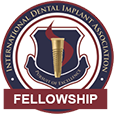Adults Can Get Cavities Too
August 7th, 2018

Sure, you brush your teeth and floss regularly, so you might think you’re off the hook when it comes to the dental chair. However, it’s just as important for adults to get regular dental exams as it is for kids. Cavities are common among adults, with 92% of people aged 18 to 64 having had cavities in their permanent teeth, according to the National Institute of Dental and Craniofacial Research.
How cavities form
Our mouths are teeming with hundreds of types of bacteria. Some are helpful and maintain good health, while others are harmful. Certain types of bacteria process the sugars in food and release acid in return. Although minor decay can be naturally reversed by your body, Dr. DeCasperis and our team at Dr. Steven DeCasperis, DMD will tell you that eventually the acid wears away the enamel and creates small holes in the surface of teeth.
Cavity prevention for adults
Some people are naturally more prone to cavities than others. However, making a few lifestyle changes can dramatically reduce your likelihood of developing cavities.
- Food choices. Eating plenty of fresh fruits and vegetables increases saliva production, and reduces cavity risk. It is also important to avoid foods that get stuck in the ridges of your teeth. Candy, cookies, and chips should be eaten sparingly.
- Beverages. Most people know that drinking soda contributes to tooth decay. However, fruit juices and energy drinks also contain large amounts of sugar. Whenever possible, replace these sugary beverages with tea or water, which rinses your mouth and prevents decay.
- Fluoridated water. Fluoride is a naturally-occurring chemical that facilitates enamel growth. Most municipal water supplies are fortified with fluoride, so drinking tap water is a great way to keep teeth healthy. People with well water may use fluoridated toothpaste or other supplemental forms of fluoride to decrease cavity risk.
- Brush teeth and floss frequently. Gently brushing teeth several times a day removes the harmful bacteria that cause cavities to develop. If possible, brush your teeth after each meal or when drinking sugary beverages. Flossing regularly removes small particles that get trapped between teeth, which further decreases tooth decay.
One of the most important steps in cavity prevention is visiting your dentist at least twice a year. Consistent dental exams ensure that cavities are caught early, before they cause major damage to your teeth.
For more information about avoiding cavities, or to schedule an appointment with Dr. DeCasperis, please give us a call at our convenient Lebanon, NJ office!









